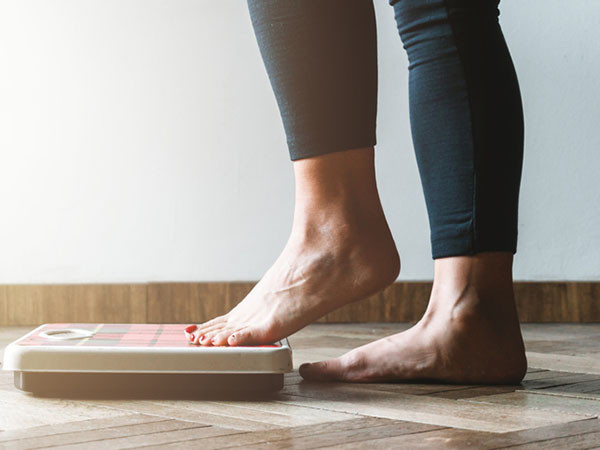
What are somatic workouts?

How to curb your stress eating

How to spot Parkinson’s disease symptoms

8 simple ways to reduce ultra-processed foods in your diet

Heart failure symptoms in women: How they’re different

GERD diet: Foods to avoid to reduce acid reflux

Strong is the new skinny

Everyday habits that sneakily weaken your bones

Don’t wait to get help for back pain

Correcting how you walk may ease osteoarthritis knee pain
Staying Healthy Archive
Articles
Harvard Health Ad Watch: Can a wearable device reduce stress?
Stress can affect sleep, mood, and appetite, and the long-term effects of chronic stress have been linked to health issues like cardiovascular disease, obesity, and Alzheimer's disease. A wearable device claims that it can reduce stress and build the wearer's resistance to stressful situations — but how does it work, and can any of its claims be proven?
Supplements: A scorecard
A detailed look at supplements and their medical use.
Can flavonoids help fend off forgetfulness?
Eating a broad variety of fruits and vegetables is a good way to get a sufficient intake of flavonoids, chemicals that contribute to many aspects of health. Now, a study suggests that flavonoid-rich foods may also play a role in protecting memory and thinking as people get older.
Long-lasting healthy changes: Doable and worthwhile
Abundant research shows that healthy lifestyle factors protect people against serious health problems like diabetes, high blood pressure, heart disease, stroke, cancer, and more. Even small steps toward a healthier lifestyle can make a big difference in our lives––here's practical advice for making healthy changes stick.
Vitamin D and your health: Breaking old rules, raising new hopes
Vitamin D's primary function is to help the body absorb calcium, though it may also protect against prostate cancer and other diseases. Many people do not get enough from sunlight, its natural source, and should get the needed amount via a supplement.
Music and health
Researchers are exploring the many ways in which music may influence health, from stress relief to athletic performance.
A new treatment for obesity
A new medication for the treatment of obesity has been approved by the FDA, and it received significant media attention in the months leading up to its approval. A high-dose injectable hormone, it already existed in a different form as a treatment for type 2 diabetes, but in this form and dosage it has advantages over other available weight-loss medications, as well as its own potential risks.
Grandparenting: Ready to move for family?
The desire to be closer to children and grandchildren leads many older adults to consider relocating to different parts of the country. But such a move is not possible for everyone, and not advisable for some. Before exploring relocation, take time to consider the all implications — as well as your children's feelings on the subject.
How can I help my partner with dementia who resists help?
Caring for someone can be stressful, and this can be even more challenging if a loved one is not ready to accept help. Caregivers who find themselves in this situation should take steps to enlist others' help to ease their burden and should take time for themselves to reduce their stress levels and protect their mental health.

What are somatic workouts?

How to curb your stress eating

How to spot Parkinson’s disease symptoms

8 simple ways to reduce ultra-processed foods in your diet

Heart failure symptoms in women: How they’re different

GERD diet: Foods to avoid to reduce acid reflux

Strong is the new skinny

Everyday habits that sneakily weaken your bones

Don’t wait to get help for back pain

Correcting how you walk may ease osteoarthritis knee pain
Free Healthbeat Signup
Get the latest in health news delivered to your inbox!
Sign Up











